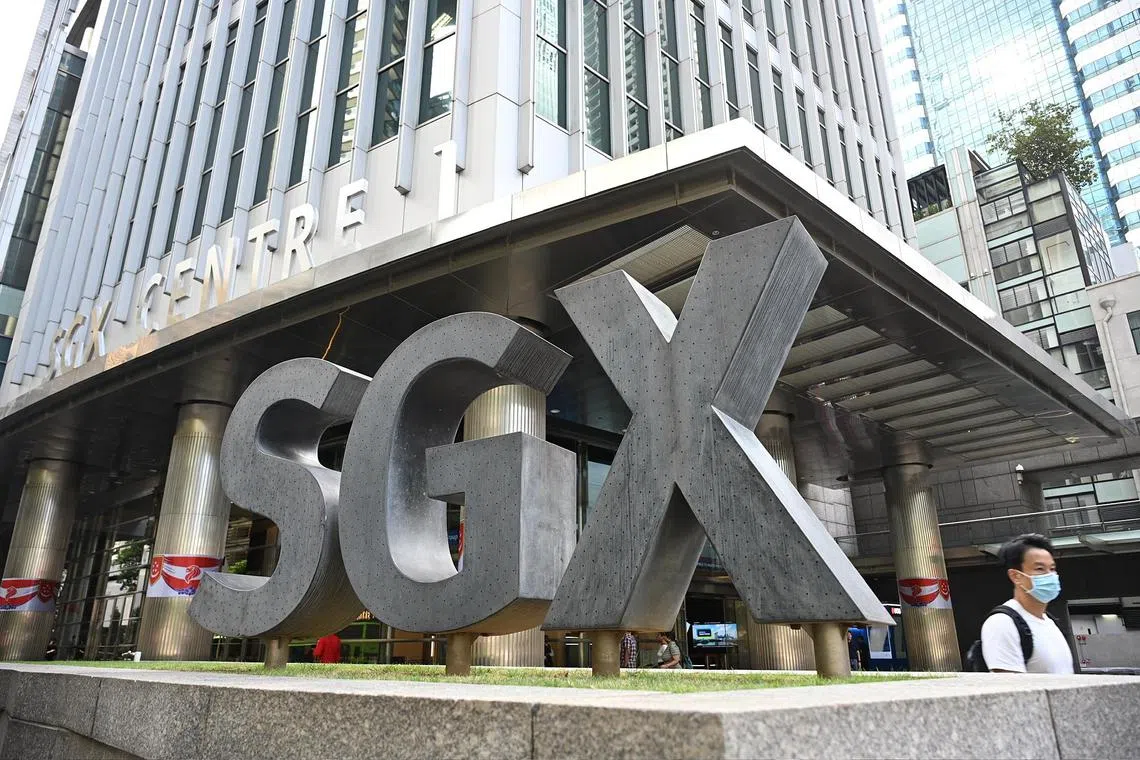Big swings in markets provide profit opportunities for rational investors: US investor Howard Marks
Sign up now: Get ST's newsletters delivered to your inbox

When the market is euphoric, investors can sell stocks at prices that are higher than the intrinsic or book value.
PHOTO: ST FILE
Follow topic:
SINGAPORE - Stock markets often overreact, opening up opportunities for rational investors to make a profit, said American investment guru Howard Marks in his latest memo.
During big market moves like the one seen in early August, there are few effective rules for investors to follow, said the billionaire co-founder and co-chairman of Oaktree Capital Management, the world’s largest investor in distressed securities.
“Superior investing always comes down to skilful analysis and superior insight, not adherence to formulas and guidelines,” he said.
When markets are volatile, no one performs rational analysis because of psychological swings, he said.
“What this means is that in good times, investors obsess about the positives, ignore the negatives, and interpret things favourably. Then, when the pendulum swings, they do the opposite, with dramatic effects,” said Mr Marks, whose memos are widely followed by the global investment community for his investment strategies and insight into the US economy.
At the start of August, the S&P 500 – an index which tracks the stock performance of 500 of the largest companies listed in the US – fell on three consecutive trading days, tumbling a total of 6.1 per cent on a combination of factors, before rebounding as quickly as it had fallen.
Singapore’s Straits Times Index too caved under pressure in early August before recovering in the ensuing weeks.
The global market rout prompted a team of economists at the Bank for International Settlements (BIS) – a bank for central banks – to do a comprehensive dig into what triggered the meltdown. They found that nothing has changed.
As volatility recedes, traders have wasted no time rushing back into some of the same leveraged bets that contributed to the initial sell-off, the BIS team said on Aug 27.
One of Mr Marks’ key observations was that in the real world, things fluctuate between “pretty good” and “not so hot”. But in investing, perception often swings from “flawless” to “hopeless”.
He said: “When prices collapse as they did at the start of this month, it’s not because conditions have suddenly become bad. Rather, they become perceived as bad.”
Mr Marks, 78, had a net worth of US$2.2 billion (S$2.9 billion) in 2022, according to Forbes.
He pens an investment memo a few times a year, a habit he formed in 1990 when he felt compelled to write about achieving superior investment performance. Often, he writes about topics that merit discussion.
Los Angeles-based Oaktree Capital was founded in 1995. As at June 30, it managed US$193 billion for clients, including US pension funds, insurance companies and sovereign wealth funds.
In his latest Aug 22 memo Mr Market Miscalculates, Mr Marks said that given the market’s inconsistent behaviour, stock prices can fluctuate wildly from their fair value.
When the market is euphoric, investors can sell stocks at prices that are higher than the intrinsic or book value.
Conversely, when the market is bearish, investors can buy stocks at prices that are fundamentally too low.
The market’s miscalculations provide profit opportunities to investors interested in taking advantage of them, Mr Marks said.
Further complicating things is the fact that most market developments can be interpreted positively and negatively, depending on the prevailing mood.
This was witnessed during the three-day decline in August when foreigners were seen selling more Japanese stocks than they bought. Investors reacted as if this meant something.
“But if foreigners sold on balance, Japanese investors must have bought on balance. Should either of these phenomena be treated as more significant than the other? If so, which one?” Mr Marks said.
There is also the contagion effect during extreme moves: Something goes wrong in the US market.
European investors take that as a sign of trouble, so they sell. Asian investors detect that something negative is afoot, so they sell overnight. And when US investors return the next morning, they are spooked by the negative developments in Asia, which confirm their pessimistic inclinations, so they sell.
Another source of miscalculation is investors’ tendency towards optimism and wishful thinking, Mr Marks said.
“And if this behaviour is rewarded in good times, still more aggressiveness usually ensues. Rarely do investors realise that (a) there can be a limit to the run of good news or (b) an upswing can be so strong as to be excessive, rendering a downswing inevitable,” he said.
Investors must temper their enthusiasm. They should start to worry if a corporate’s profit growth is slower than its stock price appreciation, he said.
He added: “Volatile psychology, skewed perception, overreaction, cognitive dissonance, rapid-fire contagion, irrationality, wishful thinking, forgetfulness, and the lack of dependable principles. That’s quite a laundry list of ills.
“Together, they constitute the main cause of extreme market highs and lows and are responsible for the volatile swings between them.”
Big fluctuations show that psychology is changing radically, and a few emotional investors can move prices much more than should be the case, he said.
“The worst thing you can do is join in when other investors go off on these irrational jags. It’s far better to watch with bemusement from the sidelines, buttressed by an understanding of how markets work,” Mr Marks advised.
It is the primary job of the investor to take note when prices stray from intrinsic value and figure out how to respond rationally rather than emotionally, he said.


